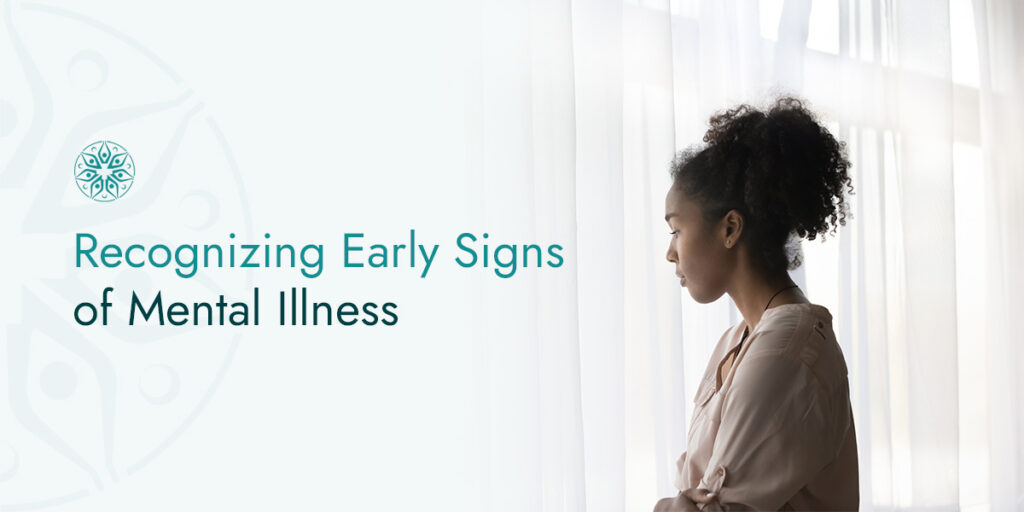Mental illness affects most people at some point in their life. Unfortunately, there’s a significant stigma against these “invisible” disorders, which leaves many people suffering in silence. Changing the stigma takes all of us, and it starts with learning how to recognize mental illness and approach someone you think may be going through it.
How to Recognize Mental Illness in Adults
Many forms of mental illness present different ways. However, many conditions have similar effects. If you notice any of these symptoms in yourself or a loved one, you may be dealing with mental illness:
- Intense mood changes: Sudden mood changes are often one of the first signs of someone struggling with mental illness.
- Increased isolation: People with mental illness may find it challenging to hide their pain or feel like a burden. Instead of telling people about it, they stay away from others.
- Decreased energy: Managing symptoms alone can take a lot of energy. Individuals may sleep more and not do what they want to because they’re too exhausted.
- Changes in habits: The person may not enjoy things like they used to, either overindulging or avoiding them altogether. Even common habits like eating or sleeping can spiral out of control. They may also engage in increasingly risky behaviors.
- Constant stress, fear and worry: We all deal with these emotions sometimes, but people with mental illness obsess over them until it’s all-consuming.
- Addiction: Mind-altering substances like alcohol and other drugs are a common way people self-medicate. Although they alleviate symptoms temporarily, the long-term effects often result in addiction and worsening mental health.
What to Do After Recognizing Mental Illness
If you notice an emerging mental illness, your next steps are:
- Talk to them: If you think someone you love may be struggling with mental illness, approach them calmly and from a place of care, not judgment. Because of the stigma associated with mental illness, many people fear rejection and misunderstanding.
- Reach out: If you think you have a mental illness, telling someone you’re struggling can lessen your feelings of loneliness.
- Get professional help: Most mental illnesses don’t go away on their own, but they can be treated and managed. Talking to a psychiatrist or a therapist can help you cope when your symptoms are at their worst and give you tools to improve your overall wellness.
Find Help at 7 Summit Pathways
7 Summit Pathways is a rehabilitation clinic that uses evidence-based treatment for the 7 Dimensions of Wellness — physical, emotional, social, spiritual, environmental, occupational and intellectual. Our patients often deal with addiction and co-occurring disorders, so we create highly personalized treatment plans for every person entering our program.
If you know someone dealing with addiction and mental illness, reach out to our team today. There is no need to deal with your illness alone. Our team of physicians and specialists will be happy to help you get back on your feet and find your path to Recovery.
